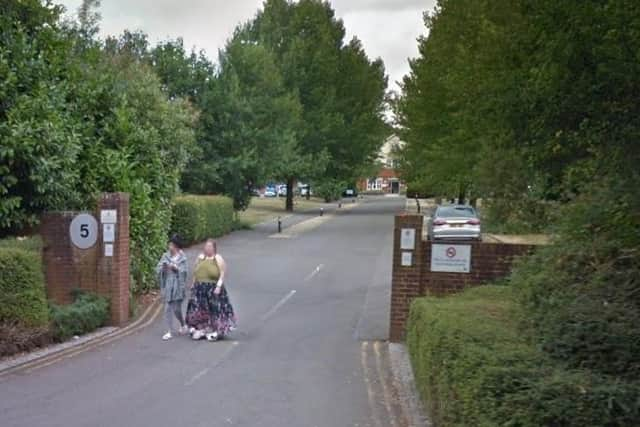CQC demands urgent improvements at Priory Hospital Burgess Hill following inspection of two wards
and live on Freeview channel 276
The CQC demanded that the hospital – a specialist service for mental illness – improve the quality of its female specialist personality disorder ward (Amy Johnson ward), as well as the forensic low secure inpatient ward (Michael Shepherd ward).
The CQC said inspectors visited both wards in May after receiving ‘concerning information’ about patient safety.
Advertisement
Hide AdAdvertisement
Hide Ad“Following our inspection of Priory Hospital Burgess Hill, we were concerned about the quality of care,” said Karen Bennett-Wilson, CQC’s head of hospital inspection.


“We issued the hospital with a letter demanding immediate improvements be put in place, or we would impose conditions upon them to restrict their activity,” she added.
Mrs Bennett-Wilson said inspectors found ‘a number of concerns relating to patient safety’ on both wards and gave the hospital feedback on their findings.
In its letter the CQC told the hospital to submit information on how it would make immediate improvements.
Advertisement
Hide AdAdvertisement
Hide Ad“The management team knows what it must do,” said Mrs Bennett-Wilson, adding that the hospital needs to have appropriate systems in place that support staff and keep patients safe.
“We will continue to monitor the hospital closely and will not hesitate to take action if Priory Hospital Burgess Hill fails to make the necessary improvements,” she said.
A spokesman for Priory Hospital Burgess Hill said: “We take the CQC’s findings very seriously, and we have taken a number of measures to address the issues identified by the inspection.”
The CQC said its inspectors found that the two wards did not have enough experienced and skilled staff to manage all the wards’ risks.
Advertisement
Hide AdAdvertisement
Hide AdInspectors also found staff were not consistently undertaking assessments of all patients’ identified risks and did not clearly identify their severity.
They said there were high levels of ‘restrictive practices’ on the Amy Johnson ward and that staff did not get the right balance between maintaining safety and providing the least restrictive environment they could to help patients recover.
Staff did not always have access to patients’ care plans and risk assessments, said inspectors, adding that ‘frequent problems’ with the electronic system had caused this.
The CQC went on to say that staff who did not regularly work at the hospital did not have log in details and could not access patient information easily.
Advertisement
Hide AdAdvertisement
Hide AdThe service did not always capture and act on patient feedback either, said inspectors, adding that there was no evidence or clear process of how incidents were recorded and investigated.
However, the CQC said inspectors found that staff did provide a range of treatments, like dialectical behavioural therapy and cognitive behavioural therapy, which were suitable to patients’ needs in the Amy Johnson rehabilitation ward.
They also said leaders had the knowledge, skills and experience to perform their roles, and were visible and approachable for patients and staff.
A spokesman for the hospital said: “We have reviewed our risk assessment procedures using external clinical quality leads.
Advertisement
Hide AdAdvertisement
Hide Ad“Priory’s quality team continues to work with the hospital to ensure that everyone at the site follows best practice.”
The spokesman added: “We have reviewed our governance structure around patient feedback and the way we record incidents. We hold monthly ‘lessons learned’ meetings, and disseminate their findings to all staff. IT issues at the time of the inspection have subsequently been resolved.”
“Because of recent staffing pressures caused by the shortage of registered nurses in the region, we have had to react quickly and take the regrettable decision to close two of the hospital wards, including the Amy Johnson ward,” he said.
“We took this step to ensure our patients continue to receive the high quality care they deserve in a safe environment,” the spokesman added.
Advertisement
Hide AdAdvertisement
Hide AdThe CQC said that the current overall rating of ‘good’ was ‘not reflective of the care that was being delivered at the hospital’ so this rating has been suspended until the CQC can carry out a full inspection.
The hospital spokesman said: “We continue to invest heavily in efforts to attract appropriate nursing and other clinical staff, and we are confident the hospital will soon regain its ‘good’ CQC rating.”
The CQC’s report has been published on www.cqc.org.uk and people can read it here.